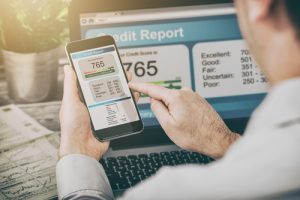 A new credit assessment tool can help servicers mitigate risk and prevent loss during difficult economic periods, industry experts say, according to a complimentary MReport webinar last week entitled “How Mortgage Servicers Can Mitigate Risk Exposure in a Volatile Environment,” sponsored by FICO.
A new credit assessment tool can help servicers mitigate risk and prevent loss during difficult economic periods, industry experts say, according to a complimentary MReport webinar last week entitled “How Mortgage Servicers Can Mitigate Risk Exposure in a Volatile Environment,” sponsored by FICO.
You can watch a recording of the webinar here.
The webinar featured speakers Joanne M. Gaskin, AMP, VP Scores and Analytics, FICO and Ed Delgado, Chairman Emeritus, Five Star Global, LLC. They discussed the ways that financial institutions can more precisely predict a homeowner’s resilience during periods of economic disruptions or volatility, such as the current COVID-19 crisis.
Specifically, they discussed how FICO's recently introduced Resilience Index helps mortgage servicers manage potential latent risk within groups of borrowers bearing similar FICO Scores. It does so, they noted in the introduction, by "leveraging the FICO Resilience Index (FRI) proactively for account management decisions to reduce exposure with greater precision—taking homeowner-level resilience into account."
FICO's new scoring model, which, FICO said, is designed to help lenders better assess consumers’ sensitivity to financial stress by looking at their capacity to survive financially though a downturn, is transformative, Delgado said.
"As an industry, one of the most painful outcomes of what we do is a foreclosure," he said. "Oftentimes we look at it in terms of, what's our credit loss, and how quickly can we complete an REO liquidation...? What is lost in all that is the pain that occurs within a family, a community ... so whenever there is an opportunity to advance technologies that help mitigate that loss, it is exciting."
Gaskin goes on to detail the methodology of the FRI while pointing out the ways in which it is indeed such a preventative and industry-altering advancement.
This past summer, FICO introduced the FRI, which is meant to complement its standard FICO score.
"During economic uncertainty, lenders and investors aim to evaluate and balance portfolios based on rapidly changing conditions," FICO reported on its blog. "This helps further the safety and soundness in credit, as well as support the global economy. By actively working with lenders and consumers to navigate the current situation, it is apparent that precise analytics are as important as ever to help avoid over-tightening of credit which can delay an economic recovery."
The FICO Resilience Index is designed to give lenders and investors a refined tool to help identify those consumers across FICO scores bands that represent higher resilience during an unexpected economic disruption. For instance, higher-resilience consumers tend to have more experience managing credit; lower total revolving balances; fewer active accounts; and fewer credit inquiries in the last year.
The FICO Resilience Index’s scale provides an additional layer of insight to help more accurately capture the resilience of a consumer and empower lenders to provide access to credit during difficult economic times. Unlike the FICO Score, which ranges from 850 to 300, the FICO Resilience Index outlines a scale from 1-99. Consumers with scores in the 1 to 44 range are viewed as the most prepared and able to weather an economic shift, according to FICO.
This, Gaskin said, helps servicers answer the question: "How do I capture that latent risk that might appear during the economic stress period?"
Essentially, Gaskin explained, using data from 2007-2009 period, the FRI offers a two-digit score ranging from 1-99, lower equaling greater resilience; uses cases spanning the economic cycle during both stressed and normal periods; delivers up to five reason codes, supports adverse action narratives, per FCRA; and is pulled just like a FICO score, leveraging existing FICO score processes.
This is an early version of a tool that probably will undergo changes, Gaskin added.
The entire webinar is available here.

 theMReport.com Your trusted source for mortgage banking news
theMReport.com Your trusted source for mortgage banking news








